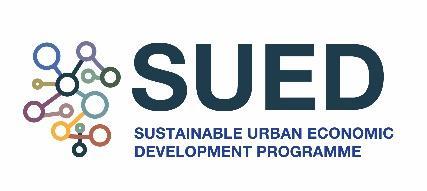






Fueled Export Surge
In Kenya’s fast-growing towns, small businesses are quietly making big moves; shipping chillies to Europe and the Gulf, and avocados across East Africa. Behind this surge is the Sustainable Urban Economic Development (SUED) programme, a UK-funded initiative that’s helping local enterprises become globally competitive.
SUED works with municipalities to unlock economic potential through urban planning, climatesmart infrastructure, and targeted business support. One of its most transformative impacts is helping small and medium-sized enterprises (SMEs) break into export markets.
Equator Kenya: Scaling Chilli Exports
Equator Kenya Ltd (EKL), based in Malindi, is a chilli processor scaling up to meet international demand. With support from SUED and Kilifi County, EKL expanded its facility to double production capacity from 70 to 150 metric tonnes annually. The upgrade includes solarpowered drying systems and digital farmer engagement tools.
SUED provided £250,000 in seed funding, unlocking a total investment of £1.25 million. This enabled EKL to grow its farmer network from 1,700 to over 8,000, ensuring consistent supply of export-grade chillies. EKL now exports to buyers in Europe, including the Netherlands, positioning Kilifi as a regional spice hub.
Avofresh: Adding
In Kisii, Avofresh Processors Ltd is turning surplus avocados into high-value oil for export. With SUED’s support, the company set up a 70-tonne-per-day extraction facility, sourcing fruit from thousands of smallholder farmers. The UK Government contributed £469,000 in seed funding, helping Avofresh secure land, equipment, and transport logistics.
The facility reduces post-harvest losses and is expected to create over 3,000 jobs across Kisii County. By using fruit that doesn’t meet fresh export standards, Avofresh adds value while expanding Kenya’s footprint in the global avocado oil market.
The Fresh Products Ltd (TFP) in Eldoret has set up the region’s first avocado packhouse, designed to sort, wash, and package Hass and Fuerte varieties for export. With £500,000 in SUED seed funding and a total investment of £1.7 million, the facility is expected to process up to 6,480 metric tonnes annually within four years.
TFP will contract over 7,000 farmers and create more than 7,000 jobs. By offering fair prices and stable demand, the company is improving livelihoods and positioning Eldoret as a competitive player in the avocado export market.
Milly Fruits Processing Ltd in Malindi is preparing to export dried mangoes, pineapples, and coconuts. With £478,000 in SUED seed funding and a total investment of £1.95 million, the facility will use solar dryers and hydro-powered grid energy to reduce emissions and postharvest losses.
The plant will work with over 4,000 smallholder farmers and produce 760 metric tonnes of dried fruit annually. With buyers already engaged in Europe and the Middle East, Milly Fruits is poised to become a major exporter from Kilifi County.
Equatorial Nut Processors (ENP) is setting up Lamu County’s first cashew nut processing plant. Supported by SUED and a £488,000 seed fund, the facility will produce raw and roasted kernels, with plans to harvest Cashew Nut Shell Liquid for industrial use.
In five years, ENP expects to process 3,500 metric tonnes annually and support over 7,000 farmers. The project is designed with circular economy principles and climate-smart practices, positioning Lamu as a new frontier for agro-export investment.
SUED’s model shows that with the right support planning, infrastructure, and investment local businesses can compete globally. These export wins aren’t just about revenue; they’re about resilience, job creation, and transforming Kenya’s intermediary cities into engines of inclusive growth.
These successes demonstrate the potential for replication across Kenya’s intermediary cities. With continued support from the UK Government and strategic partnerships, SUED is laying the foundation for a resilient, export-driven economy.